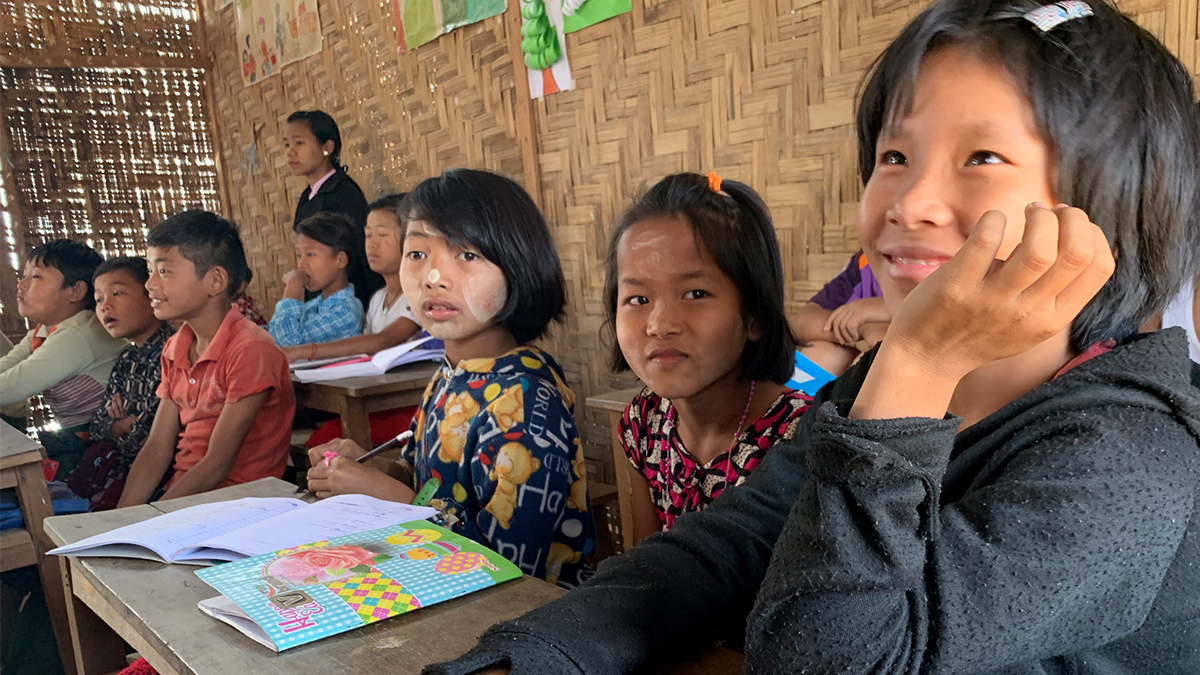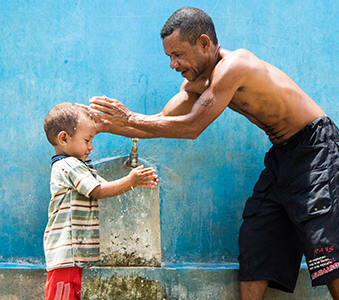Education is key to delivering hope and transformation to communities whose lives have been upturned by conflict and war.
Since the military coup in February 2021, Myanmar has been in a state of humanitarian crisis. In April 2024, the military junta commenced compulsory conscription for all young men (18-35) and young women (18-27), triggering new levels of turmoil as young men and women attempt to flee the country.
Even while democratic elections were permitted from 2015 up until the coup, war and violent conflict continued in Kayah, Southern Shan and Kachin States and within many other areas home to Myanmar’s Indigenous groups.
Today, over one third of Myanmar’s population (56 million) is living in extreme need. More than 3 million people in Myanmar are displaced – these women, men and children have been forced to flee their homes. Access to basics like education, healthcare and employment are severely limited.
For families living in crowded Internally Displaced People (IDP) camps, education for children is a major concern. With repeated displacement, and no end to the conflict in sight, many parents are worried about ensuring their children have access to formal education.
“The presence of [our local partner] is a symbol of hope to all of us trainees and the suffering neighbourhood IDP children and residents.”
James, a student from the IDP camp
With the generous support of our Australian community, Jesuit Mission is supporting our local partner in Myanmar to provide access to safe and quality education for over 3,700 children living in IDP camps. Whilst also providing emergency relief such as medicines, shelter, food and clothing.
With a key aim to minimise disruption and reduce barriers to accessing quality education experienced by displaced children and youth, the program trains and supports teachers and education leaders to improve education strategies, and learning spaces, materials and content.
Myanmar’s youth face major risks; in the academic year 2023-2024, only 5.8 million children out of 13 million school-aged children enrolled at basic education schools nationwide. The coup has severely disrupted the country’s economy, and employment prospects. Additionally, pervasive human rights abuses and violence have left deep scars within the population.
The classes allow young people to gain self-confidence and motivation to continue their education, so that they have the opportunity for a better future. Recognising the long journey toward reconciliation in Myanmar, the program also provides psycho-social support and peace building initiatives.
Ko Kyaw’s Story
Families living in the crowded slums of Yangon can barely afford daily food and essentials, let alone send their children for basic or additional education classes. Their homes are small and often poorly constructed, many don’t have electricity or sufficient lighting to allow students to complete homework and study in the evenings.
To support these children to complete their education and lift themselves out of poverty, our local partner runs a number of well-lit evening study and tuition centres.

Students are provided with books, stationery and a well-lit study centre.
Staffed primarily by volunteer teachers like Ko Kyaw, who have their own life-challenges, the study centres are giving hope and a chance to some of Myanmar’s poorest and most excluded children to improve their futures.
“Here we have 40 students, whose parents are day-labourers and many cannot pay for tuition,” Ko Kyaw says. “The students are eager to learn and I pray for a brighter future ahead for themselves and their families.”
Read more about the escalating crisis in Myanmar and Jesuit Mission Australia’s emergency response.


